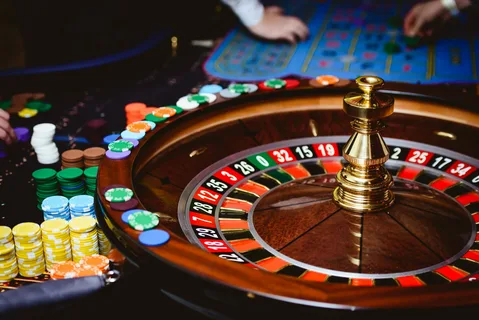The Trap of Chasing Losses
Every bettor, no matter how experienced, has faced the same dangerous temptation—trying to win back what’s been lost. Known as “chasing losses,” this behavior is one of the most destructive habits in betting. It starts innocently enough: a few unlucky results, frustration building, and the urge to recover quickly by placing bigger or riskier bets. But this emotional spiral almost always leads to greater losses and damaged confidence.
Table of Contents
ToggleIn horse racing, where outcomes can be unpredictable and streaks of bad luck common, understanding betting psychology is just as important as handicapping skill. Success in the horse racing betting sites long run depends less on finding winners and more on mastering your emotions.
Why Chasing Losses Feels So Natural
Chasing losses is deeply psychological. Human nature resists accepting defeat, especially when money is involved. Our brains are wired to seek immediate recovery to “balance the books,” even when the odds are stacked against us.
When bettors lose, adrenaline and frustration often override logic. The focus shifts from making smart, value-based decisions to regaining pride or breaking even. The problem is that betting from emotion rather than analysis turns a controlled strategy into a gamble of desperation. Each rushed wager increases risk, leading to a downward spiral that can quickly wipe out an entire bankroll.
The Cost of Emotional Betting
Once emotion takes control, rational thinking fades. You might start betting on races you haven’t studied, backing short-priced favorites just to “lock in” a win, or staking far more than your usual limit in an attempt to recover quickly. These reactions destroy discipline—the foundation of successful betting.
The consequences aren’t just financial. Chasing losses can affect confidence, decision-making, and even enjoyment of the sport. Instead of the strategic thrill of handicapping and smart wagering, the experience becomes stressful and erratic. Long-term, this psychological toll can drive bettors out of the game entirely.
Recognizing the Warning Signs
To stop chasing losses, it’s essential to recognize when it’s happening. Warning signs include:
-
Increasing bet sizes after losing a race.
-
Betting on events you haven’t analyzed.
-
Feeling anxious or angry when a bet loses.
-
Ignoring your staking plan or bankroll limits.
-
Justifying bets as “getting even” rather than making value-based choices.
When these patterns appear, the smartest move isn’t to bet again—it’s to step away. Take a break, clear your head, and return only when you can think logically.
The Power of Emotional Control
True betting success comes from emotional balance. Discipline allows you to handle both wins and losses with composure. Accepting that losing is part of the game frees you from the pressure to “make it back” immediately.
A simple but effective mindset shift is to focus on the long-term process, not individual results. Even professional bettors experience losing streaks. What keeps them profitable is consistent decision-making and sticking to their system. They don’t let one bad day dictate their next move.
Practicing mindfulness can also help. Before placing a bet, pause and ask yourself: “Am I betting because it makes sense, or because I’m upset?” That small moment of reflection can save you from costly mistakes.
Creating a Structure to Stay Disciplined
To protect yourself from emotional decisions, establish clear betting rules and never break them. A few key principles include:
-
Set a daily loss limit: Decide in advance how much you can afford to lose in one session and stop immediately once you reach it.
-
Use a staking plan: Bet a fixed percentage of your bankroll on each wager—usually between 1% and 3%.
-
Keep records: Tracking your bets helps you identify patterns, both good and bad.
-
Take breaks: After consecutive losses, walk away for a day or two. Fresh perspective reduces emotional fatigue.
-
Detach from the outcome: Focus on making good bets, not just on whether they win. Over time, smart decisions yield profit.
Turning Losses into Lessons
Losses can be valuable if treated as learning opportunities. Analyze them objectively—did you misread the race, overvalue a favorite, or let emotion guide your choice? Each mistake reveals something about your approach and mindset.
The goal isn’t perfection, but progress. Developing emotional control turns losses into data rather than disasters. It helps you refine your strategy and approach future races with greater clarity and confidence.
Conclusion: The Winning Mindset
Chasing losses is the enemy of consistent betting. It feeds on emotion, clouds judgment, and can unravel even the best strategy. The real mark of a skilled bettor isn’t how often they win, but how well they handle losing.
By mastering your emotions, sticking to a disciplined plan, and viewing losses as part of a long-term journey, you take control of the game instead of letting it control you. In horse racing, as in all forms of betting, emotional balance—not blind aggression—is what separates survival from success.


